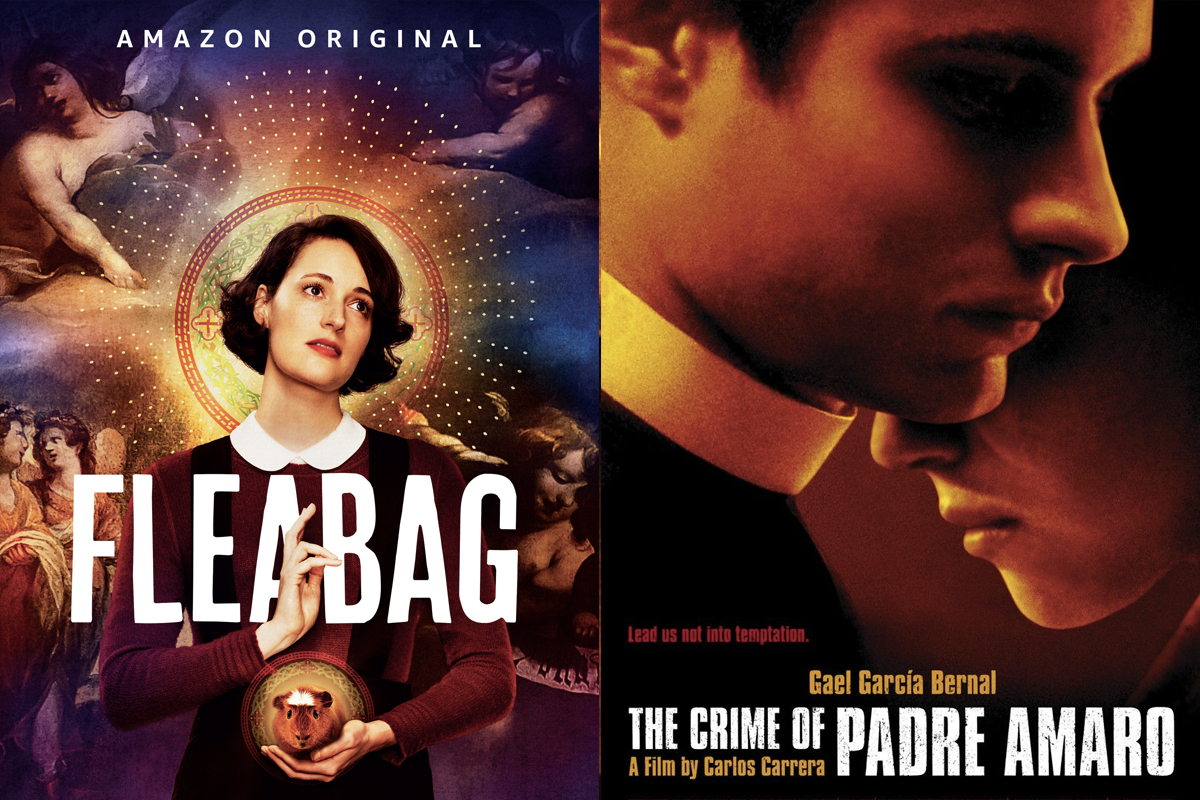Pheobe Waller-Bridge created something rare and amazing with Fleabag — a show that completely inhabits a complicated (some may say “damaged”) woman’s perspective and finds humor and humanity. The second season won all the awards, and rightfully so, for its depiction of the relationship between our troubled protagonist and a Hot Priest.
Watching it, I was conflicted. Am I supposed to root for the relationship or want Fleabag to get the hell out of there? On one hand, the Hot Priest is in fact hot. He’s also adorable (see the thing with foxes) and really sees Fleabag (he’s the only one who notices her asides). But on the other hand, he’s not available! I mean, the man has taken a vow of celibacy. And he likes being a priest so it’s not exactly a surprise (spoiler coming!) that he picks God over Fleabag (although it’s not out of the realm of possibility that one might choose Pheobe Waller-Bridge’s incredible magnetism over the Catholic God).
No matter what side you fall on though, Fleabag is notable for how it takes you through the relationship from the (white) woman’s perspective. We are with her as she first meets the Hot Priest, checks out his congregation, learns a bit about the Bible, and eventually, even, has sex with him. From Fleabag’s perspective, we see the pain and the pleasure of another manifestation of her self-destructive behavior. Only this time, it’s more poignant because she finally manages to forge a real connection, even if it’s doomed from the start.

In her relationship with the Hot Priest, Fleabag’s happiness is at stake and we want her to have it. To her, the Catholic church is an oddity, a quirk of her family. It didn’t help commit genocide against her ancestors, destroying their sacred places and building churches on top of them. It doesn’t still influence the politics, economies, and culture of her homeland, providing social services in failed states while also upholding patriarchal anti-abortion laws. It holds no greater power than to thwart her love life.
Obviously, that’s not true for many of us. So when the story of transgressing the vow of celibacy is told from the Latino perspective, it looks really different. Take the 2002 sensation, El Crimen del Padre Amaro. It also features a hot priest (who didn’t/doesn’t have a crush on Gael Garcia Bernal?) who breaks his vow, this time with Ana Claudia Talancón’s Amelia. This Spanish-language film won all sorts of awards too, even becoming one of nine films from Mexico ever to get nominated for Oscar’s Best Foreign Language Film.
But while the set up’s and critical responses are the same, pretty much everything else is different. For one, El Crimen is told from the priest’s perspective. We don’t learn much about Amelia, other than that she masturbates to Jesus (¡Dios mio!). And even that tidbit is meant to just make her more desirable for Padre Amaro. She’s the early aughts version of a priest thirst trap, a Bible-thumping virgin who Amaro literally dresses up as La Virgin. And of course, things don’t go well for her. She gets pregnant, gets a back alley abortion with Amaro’s help, and dies.

So while the stakes for Amelia are life and death, they exist only to illustrate how far Amaro has fallen. The young father starts out good but his ambitions get the better of him as he forsakes his moral code for career advancement, betraying Amelia, his mentor, and his broader community. Meanwhile, we see the Church supporting cartels, curtailing free speech, and ex-communicating the only priest who puts the well-being of his congregation first. As Padre Amaro falls from grace so does the church, making the whole movie a critique of the church as a power-hungry hypocrite without a moral compass.
It may be worth noting here that El Crimen del Padre Amaro set the box office record when it premiered in Mexico.
Hot priests sell. Rewatching the film in 2019, I couldn’t help but wonder how different it would be from the woman’s point of view. Fleabag only half-answers that question, flipping the gender perspective but also transporting us to the colonial power. Certainly, a Latina would tell the story differently. But our stories are so rarely told — we still struggle to keep critically acclaimed, feel-good family sitcoms (cough One Day At A Time cough) on air, let alone transgressive sexual narratives that risk angering the Catholic Church. So I may just be waiting a long time.

